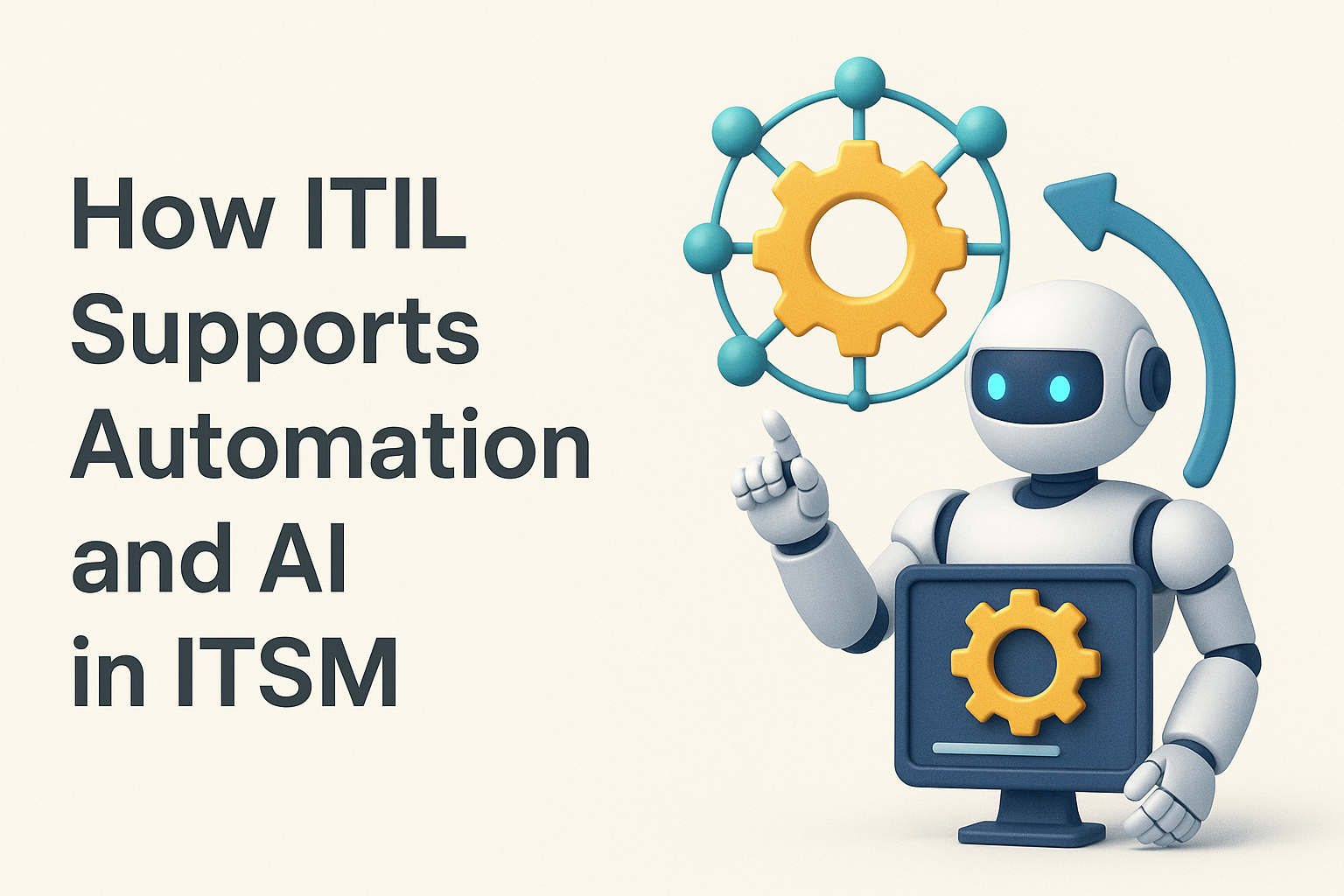How ITIL Supports Automation and AI in ITSM

In today’s rapidly evolving digital landscape, automation and Artificial Intelligence (AI) are revolutionizing IT Service Management (ITSM). As organizations strive for efficiency and agility, frameworks like ITIL play a crucial role in enabling the seamless integration of these technologies. Understanding the difference between ITIL vs PMP can help professionals choose the right path to advance their careers in this transformation-driven era.
The ITIL Certification focuses on aligning IT services with business goals, emphasizing continuous improvement and service optimization. With the rise of automation and AI, ITIL has evolved to support smarter and more proactive ITSM processes. For instance, AI-powered chatbots and virtual agents now handle a large portion of incident management, enabling quicker resolutions and freeing up human agents for more complex tasks. ITIL’s structured processes—such as Incident, Problem, and Change Management—serve as a foundation for integrating these intelligent tools while maintaining governance and quality standards.
Automation in ITIL processes ensures consistency, reduces human error, and accelerates service delivery. Routine tasks like password resets, software deployment, or patch updates can now be automated, improving response times and overall user satisfaction. ITIL’s guiding principles, such as “Optimize and Automate,” encourage organizations to identify repetitive tasks that can be streamlined using automation technologies.
On the other hand, AI in ITSM enables predictive analytics and data-driven decision-making. Through ITIL’s continual improvement model, organizations can leverage AI to analyze service desk data, predict potential failures, and implement preventive measures before issues occur. This aligns perfectly with ITIL 4’s focus on value co-creation and digital transformation, ensuring that services remain adaptive and customer-centric.
When comparing ITIL vs PMP, it’s essential to recognize their distinct yet complementary roles. While PMP Certification focuses on project management methodologies—covering timelines, budgets, and deliverables—ITIL Certification emphasizes managing IT services throughout their lifecycle. Professionals with both certifications are highly valued because they combine strategic project management expertise with deep ITSM knowledge, making them capable of leading AI-driven automation initiatives effectively.
In modern IT environments, the combination of ITIL’s structured framework and AI’s analytical power allows organizations to transition from reactive to proactive service management. This shift results in improved productivity, reduced downtime, and enhanced customer experiences.
In conclusion, ITIL Certification equips professionals to design and manage AI-powered ITSM systems that support automation and innovation. Meanwhile, understanding ITIL vs PMP helps determine whether one should focus on service optimization or project execution. As AI and automation continue to redefine IT operations, professionals who blend ITIL and PMP principles will be best positioned to drive digital transformation and deliver business value efficiently.
- Art
- Causes
- Crafts
- Dance
- Drinks
- Film
- Fitness
- Food
- الألعاب
- Gardening
- Health
- الرئيسية
- Literature
- Music
- Networking
- أخرى
- Party
- Religion
- Shopping
- Sports
- Theater
- Wellness


